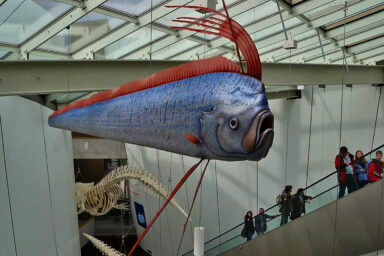Editors’ Picks for Sept 18
Economist Slams WSJ, Exxon Knew About Global Warming Decades Ago, Kochs Give Advice to Poor People, and More Picks
A new feature: articles from around the web, selected and summarized by our editors. Help us identify interesting articles — see the details.
We’re pleased to introduce a new feature that will appear on our site and in our daily newsletter, replacing the current model. PICKS are articles from around the web, either selected by our editors or recommended by readers.
These are articles that struck us — and that we think you’ll find of interest.
We are adopting a broad range of criteria for PICKS. They can be:
— updates or developments related to stories we have been covering
— stories on subjects we have not covered that relate to core areas we do cover
— stories on subjects that don’t match our core interests, but are still noteworthy because they’re surprising, disturbing, enlightening, inspiring, amusing, etc.
If you would like to recommend articles, videos, podcasts, etc. that you think your fellow readers would enjoy, please send them to picks@whowhatwhy.org. Please indicate what you consider noteworthy.
PICKS for Sept 18:
Economist Slams WSJ for “Hit Piece” on Bernie Sanders (Klaus)
An economics professor cited in a Wall Street Journal article that put the price tag of Sen. Bernie Sanders’s (I-VT) proposals at $18 trillion criticized the paper for tabulating the costs but not the benefits of these programs.
University of Massachusetts at Amherst economics professor Gerald Friedman used the most expensive item on the Journal’s list, a single-payer health care plan, to illustrate this misleading math. Noting that the paper correctly stated the price tag of such a plan, he said it neglected to mention the significant fiscal and other benefits that would help offset the costs.
In addition to saving “thousands of lives a year” and freeing businesses and local government from having to pay for the health insurance of their employees, Friedman argues that Sanders’s plan would also boost the economy and therefore provide additional tax income in the future.
Exxon’s Own Research Confirmed Fossil Fuels’ Role in Global Warming Decades Ago (Russ)
The Only Unusual Thing About Ahmed’s Story Is Everyone Noticed (Russ)
This summary near the bottom of the article on Ahmed says it all: “When we treat children like criminals, we strip them of their humanity and their innocence,” says George. Indeed, Ahmed said that his ordeal made him feel like he “wasn’t human.” The image of Ahmed standing before the police officers, suddenly becoming aware of his skin color and his name, is one that’s hard to get out of your mind. No child should have to face the adults charged with caring for him and realize that they see him not for his humanity but for his racial or religious identity. It should be Ahmed’s humanity that saves him, not his brilliance.
Here’s The Number Of Refugees The US Would Need To Admit To Match Germany’s Intake (Russ)
US Prison Population Drops to Lowest Level Since 2005 — But Still World’s Highest (Russ)
“Most state prisoners — 53 percent — were incarcerated for violent crime in 2013, according to the most recent BJS data, while 16 percent were there for drug charges. On the federal level, 50 percent of prisoners were serving sentences for drug crimes. Only 7 percent were listed as violent offenders, the BJS says.”
We’re wondering why incarceration for drug crimes is so much higher than for violent offenses in the federal system — and than in state prisons. If any of our readers have seen a study explaining that phenomenon, please let WhoWhatWhy know.
Who better than the Kochs to dish up some handy tips for lifting people out of poverty (Russ)
Six-Hour Workday Working Well for Sweden (Russ)
Annals of Stupidity: Fifth most common Google query about Jeb Bush — Whether he is related to George Bush. No joke! (Russ)
First most common question: Is Jeb Bush from the classic TV sitcom, The Beverly Hillbillies? (That’s a joke!)
Henry Kissinger and America’s “Endless War” (Gerry)
Are Henry Kissinger and his acolytes (we’re looking at you, Hillary Clinton) “realists” or “idealists” in foreign policy? Given the damage his influence has wrought at home and abroad for nearly 50 years, maybe we need a new vocabulary. Greg Grandin has some useful suggestions in Kissinger’s Shadow: The Long Reach of America’s Most Controversial Statesman (Metropolitan Books).



